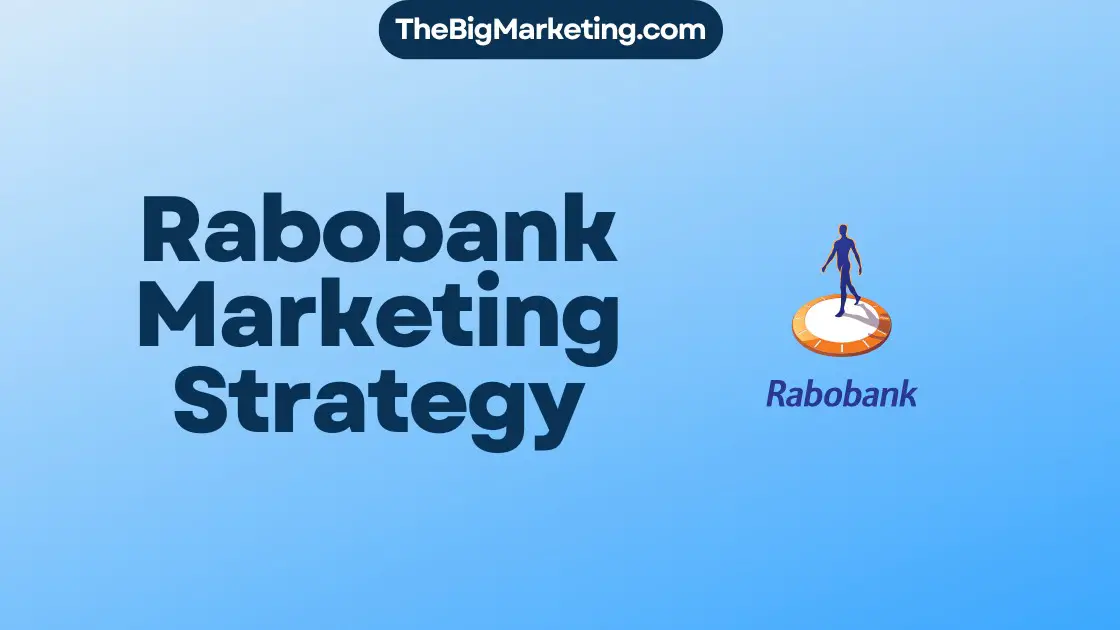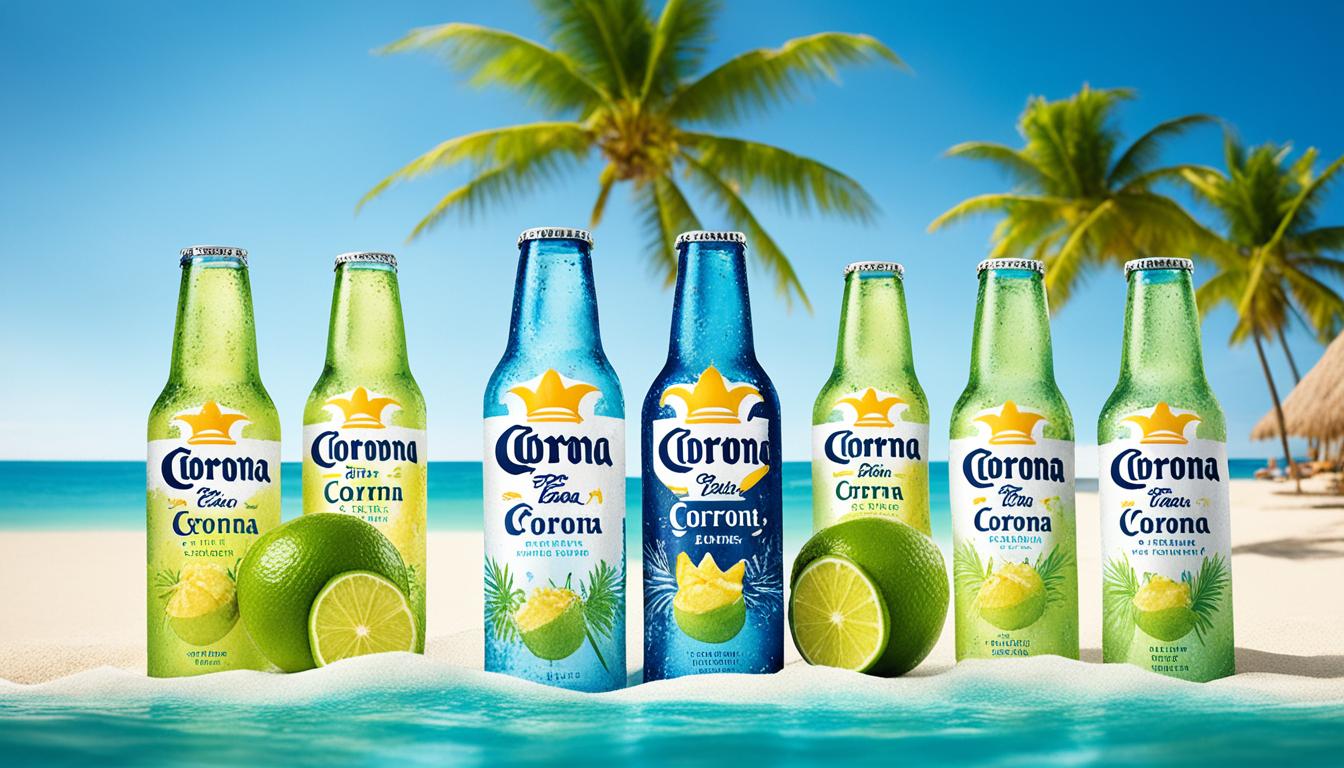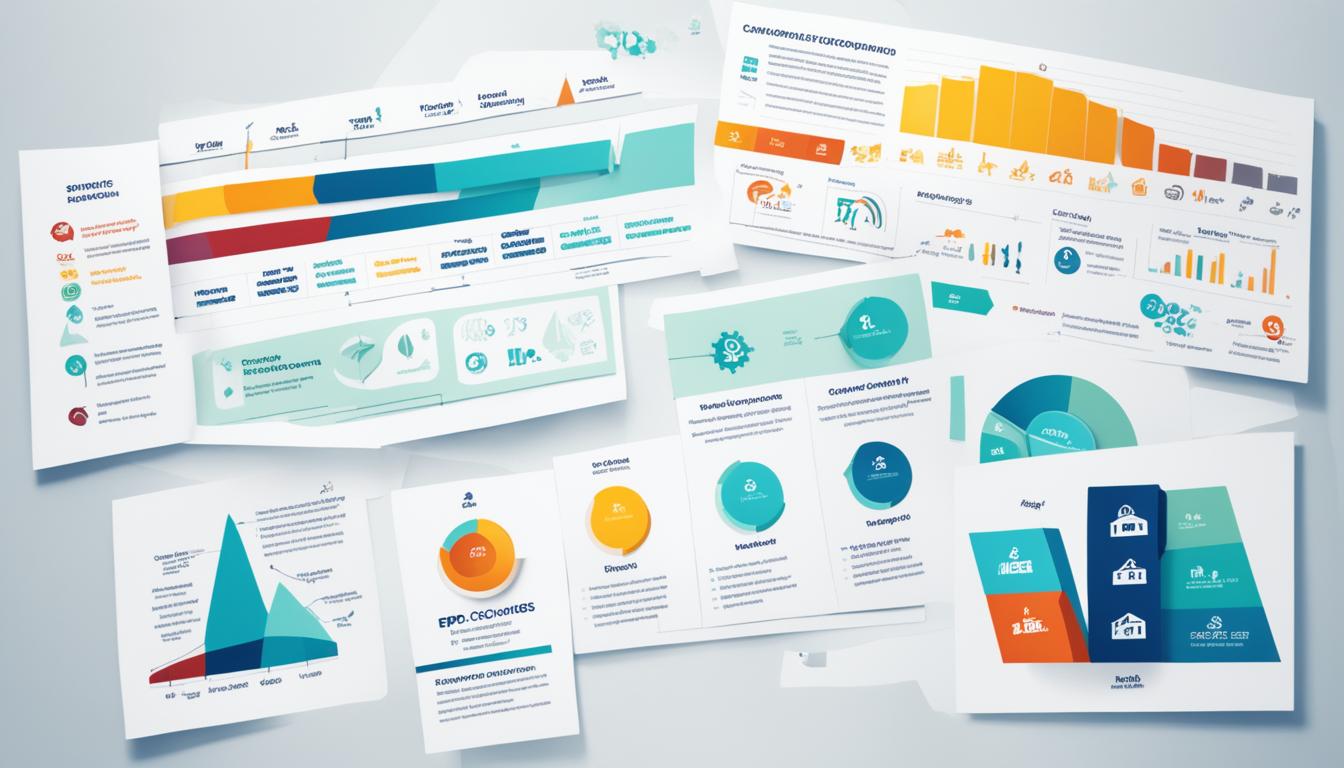Delta Air Lines has established itself as a leader in the airline industry by implementing a robust branding strategy that emphasizes customer engagement and brand loyalty. By focusing on innovative customer experiences, Delta not only enhances its corporate identity but also positions itself favorably in a competitive marketplace. As the airline navigates challenges and opportunities in the aviation sector, its commitment to operational excellence and safety further reinforces its brand reputation.
Over the years, Delta has continuously evolved its approach to marketing and customer service, appealing to a diverse range of travelers. The integration of technology and sustainability initiatives showcases the airline’s forward-thinking mindset, making it a preferred choice for many. Understanding Delta’s branding strategy provides insights into how it builds trust and long-lasting relationships with passengers.
By examining these crucial elements of Delta’s branding efforts, readers can gain a deeper appreciation for how the airline maintains its competitive edge and adapts to changing industry dynamics.
Key Takeaways
- Delta Air Lines enhances its brand through innovative customer experiences.
- The airline’s commitment to safety and operational excellence builds trust with travelers.
- Sustainability initiatives position Delta favorably in the evolving airline industry.
History and Evolution of Delta Air Lines
Delta Air Lines has a rich history that dates back to its founding, marked by significant expansion and continual adaptation to the aviation industry. From its early years to its position as a major player in the 21st century, Delta has undergone transformations that reflect the changing landscape of air travel.
Foundation and Early Years
Delta Air Lines was founded in 1925 as Huff Daland Dusters, primarily serving as a crop-dusting service. It was rebranded as Delta Air Service in 1929 and began passenger services between Texas and Mississippi. Delta’s first commercial flight took off from Dallas to Jackson, Mississippi, marking its entry into scheduled air travel.
Throughout the 1930s, Delta expanded its operations, integrating more cities and establishing regional routes. The introduction of the Douglas DC-3 in 1937 revolutionized air travel for Delta, allowing for increased passenger capacity and comfort. This aircraft helped solidify its presence in the aviation industry and laid the groundwork for future growth.
Expansion and Growth
The post-World War II era saw Delta embark on significant expansion. In 1945, it was one of the first airlines to acquire jets, further modernizing its fleet. The introduction of the Boeing 707 in the 1960s positioned Delta as a leader in transcontinental and international travel.
Strategic acquisitions, including Eastern Air Lines and Western Airlines in the 1980s, allowed Delta to broaden its network. These mergers expanded Delta’s reach throughout the USA and internationally, strengthening its brand and operational capabilities.
By the late 1990s, Delta was recognized as one of the major airlines in the United States, offering millions of passengers a multitude of destinations worldwide.
Delta in the 21st Century
Entering the 21st century, Delta faced new challenges, including intense competition and the aftermath of the 9/11 attacks. The airline adapted by investing in technology, focusing on customer experience, and implementing cost-cutting measures. It emerged from bankruptcy in 2007 with a renewed focus on service and operational excellence.
Delta’s merger with Northwest Airlines in 2008 created the world’s largest airline at the time, further consolidating its position in the aviation industry. Today, Delta is known for its extensive domestic and international routes, commitment to sustainability, and innovation in customer service. The airline continues to evolve, aiming to lead the industry in reliability and customer satisfaction.
Corporate Culture and Values
Delta Air Lines embodies a corporate culture that deeply integrates safety, customer service, and innovation. These core values shape its internal environment, ensuring every employee contributes to a reliable and customer-focused experience.
Commitment to Safety
Delta Air Lines prioritizes safety above all else, viewing it as the foundation of its operations. The airline adheres to stringent safety protocols and regulatory standards.
Through rigorous training programs and regular audits, every employee is prepared to uphold safety measures. Delta invests in advanced technology and equipment, further enhancing operational safety.
Additionally, the airline incorporates a culture of transparency where employees are encouraged to report safety concerns without fear of reprimand. This proactive approach allows for continual improvement and reinforces its commitment to a secure travel environment.
Focus on Customer Service
Customer service is central to Delta’s branding strategy. The airline emphasizes a people-centric culture that values personal connections with passengers.
Employees receive extensive training on customer interactions, empowering them to handle diverse situations with care and respect. Delta solicits customer feedback regularly to refine its services, ensuring continuous improvement.
There are tailored services for frequent travelers, including loyalty programs that reward valued customers. Delta recognizes that exceptional service fosters brand loyalty and enhances overall travel experiences.
Innovation and Reliability
Innovation at Delta Air Lines drives efforts to enhance operational reliability and customer experience. The airline embraces cutting-edge technologies, including artificial intelligence and data analytics, to optimize flight operations and improve scheduling.
Delta’s investment in fleet modernization ensures that aircraft are both fuel-efficient and equipped with the latest in-flight amenities. This commitment to innovation supports the airline’s goal of providing punctual and dependable services.
Moreover, Delta’s culture encourages employees to share ideas that can improve operational processes, fostering a creative environment. This combination of reliability and innovative practices helps Delta maintain its competitive edge in the airline industry.
Branding and Identity
Delta Air Lines has cultivated a strong brand identity that reflects its core values and commitment to quality service. The development of its brand image is carefully aligned with its mission to provide exceptional travel experiences. This identity is noticeable in both the emotional resonance with customers and the visual elements.
Development of Brand Image
Delta Air Lines has focused on creating a brand image that emphasizes reliability, safety, and customer service. This image is embedded in its tagline, “Keep Climbing,” which conveys a sense of perseverance and growth.
The airline’s messaging consistently highlights its commitment to innovation and improvement. This approach resonates with customers who seek a dependable travel partner. Trust and loyalty are fostered through positive customer interactions and experiences, further solidifying delta’s strong market presence.
Delta’s adaptation during challenges, such as the COVID-19 pandemic, demonstrated resilience and care for passenger safety, enhancing its image. The company’s proactive communication and transparent policies helped maintain confidence among travelers.
Visual Identity and Symbolism
The visual identity of Delta Air Lines is marked by its iconic logo, which features a bold triangle symbol. This logo, along with a consistent color palette of red, blue, and white, contributes to a strong and recognizable brand presence.
The color scheme evokes feelings of trust and professionalism. The triangle itself symbolizes Delta’s ambition and trajectory in the aviation industry, reinforcing its commitment to progress.
The branding extends to aircraft design and employee uniforms, which are both modern and visually appealing. This cohesive visual identity ensures that customers can easily recognize Delta, reinforcing brand loyalty and trust. The emphasis on a unified brand image across all touchpoints helps solidify Delta’s position as a leader in the airline industry.
Marketing Strategies
Delta Air Lines employs a variety of marketing strategies to strengthen its brand and enhance customer experiences. Key focus areas include targeted advertising campaigns, engagement through social media platforms, and customer-centric promotions. Each strategy is designed to attract and retain a loyal customer base while reinforcing brand identity.
Advertising Campaigns
Delta’s advertising campaigns are carefully crafted to emphasize its commitment to quality and service. The airline often showcases its extensive route network and modern fleet through high-impact visuals and compelling narratives.
Recent campaigns have highlighted safety protocols and the unique travel experience offered by Delta. By utilizing a combination of traditional and digital marketing channels, including television, online ads, and print media, Delta successfully reaches diverse audiences.
Delta’s use of storytelling allows them to connect emotionally with potential customers, illustrating the role of travel in creating memorable experiences.
Engagement on Social Media Platforms
Social media is an integral part of Delta’s marketing strategy. The airline actively engages with customers on platforms like Twitter, Facebook, and Instagram, fostering a sense of community.
Delta uses these channels not just for promotions but also for customer service, quickly addressing inquiries and concerns. User-generated content is often shared, which strengthens the brand’s relationship with its audience.
Through targeted ads on social media, Delta can reach specific demographics, making their marketing efforts more effective. This tailored approach enhances brand visibility and reinforces customer loyalty.
Customer-Centric Promotions
Delta Air Lines implements a variety of customer-centric promotions aimed at enhancing travel satisfaction. These promotions often include special offers, loyalty rewards, and personalized communication based on customer preferences.
The frequent flyer program, SkyMiles, is a core component of Delta’s customer-centric strategy. It rewards loyal customers with miles that can be redeemed for future travel, upgrades, and exclusive experiences.
Additionally, seasonal promotions and partnerships with other brands further elevate the value proposition for travelers, ensuring that customers feel appreciated and engaged. These strategies demonstrate Delta’s commitment to putting customers at the center of their marketing efforts.
Customer Experience and Services
Delta Air Lines prioritizes enhancing customer experience through tailored services that cater to diverse preferences. The airline employs various strategies to ensure passengers have enjoyable travel experiences, whether in Delta One, first class, or the main cabin.
Catering to Customer Preferences
Delta understands the importance of catering to individual passenger needs. The airline offers personalized options that allow travelers to select meal preferences and customize in-flight entertainment.
Passengers can enjoy regional dishes and healthier choices based on dietary requirements. This attention to customer preferences reinforces Delta’s commitment to delivering a satisfactory travel experience.
Additionally, the airline actively seeks feedback through surveys and reviews, demonstrating their dedication to continuous improvement.
In-flight Services and Amenities
Delta’s in-flight services are designed to ensure comfort and convenience for travelers across all classes. Passengers in Delta One and first class experience premium amenities, including spacious seating, gourmet dining options, and exclusive in-flight entertainment.
Main cabin travelers also benefit from complimentary snacks and soft drinks, along with the option to purchase additional items. Every passenger enjoys free Wi-Fi, enabling connectivity during the flight.
Delta’s cabin crew is trained to provide attentive service, ensuring every traveler feels valued and catered to throughout their journey.
Delta Sky Club and Lounge Access
The Delta Sky Club offers an elevated experience for travelers seeking comfort and relaxation before their flights. Members enjoy amenities such as complimentary snacks, beverages, and a quiet atmosphere away from the airport hustle.
The lounges provide access to business services and high-speed Wi-Fi, catering to travelers who wish to work on the go.
Additionally, passengers flying in Delta One or first class also receive complimentary access to the Sky Club, enhancing their overall travel experience while providing a seamless transition from ground to air travel.
Loyalty Programs
Delta Air Lines has established a robust loyalty program through its SkyMiles initiative, which serves as a cornerstone of its branding strategy. This program not only incentivizes frequent travel but also fosters long-term customer relationships, enhancing satisfaction and loyalty.
SkyMiles Membership Benefits
The SkyMiles program offers a multitude of benefits designed to reward frequent travelers. Members can earn miles through flights, credit card purchases, and various partnerships. Accumulated miles can be redeemed for flight tickets, seat upgrades, and various other travel-related expenses.
Additionally, SkyMiles members enjoy perks such as priority boarding, complimentary checked bags, and discounted rates for car rentals and hotel stays. The program also features unique earning opportunities through promotional campaigns and bonuses. This comprehensive approach encourages customers to consistently choose Delta over competitors, enhancing its brand loyalty.
Elevating Customer Loyalty and Satisfaction
Delta uses customer loyalty to elevate overall satisfaction through its SkyMiles program. By providing personalized experiences and rewards, Delta demonstrates its commitment to meeting customer needs. This focus on customer-centric strategies promotes a positive relationship between the airline and its passengers.
Regular communication with SkyMiles members about their benefits and personalized offers further strengthens this connection. Delta’s emphasis on feedback loops allows the airline to adapt and enhance its offerings, ensuring that customers feel valued. This proactive approach to customer engagement is pivotal in fostering a loyal customer base, making Delta a preferred choice in the competitive airline industry.
Safety Measures and Protocols
Delta Air Lines prioritizes safety through rigorous protocols and standards designed to protect passengers and crew. The airline implements comprehensive flight operation standards and has adapted its practices in response to the challenges posed by the Covid-19 pandemic.
Flight Operation Standards
Delta upholds stringent flight operation standards to ensure the safety of its passenger flights. Their Safety Management System (SMS) employs continuous risk management, which integrates data analysis and safety reviews.
Key components include:
- Just Culture Principles: Encouraging transparency and learning from safety incidents.
- FAA-Approved Practices: Adhering to regulations set by the Federal Aviation Administration.
- Innovative Tools: Utilizing technology such as FlightPulse for real-time safety monitoring.
These initiatives foster a proactive safety culture, enabling the airline to mitigate risks effectively and respond to safety challenges promptly.
Response to the Covid-19 Pandemic
Delta Air Lines implemented a multi-faceted response to the Covid-19 pandemic, prioritizing the health of its passengers and crew. Enhanced safety measures include:
- Mandatory Masks: Passengers and crew are required to wear masks throughout the flight.
- Sanitization Protocols: Frequent cleaning of aircraft interiors using EPA-approved disinfectants.
- Contactless Services: Adoption of digital boarding passes and in-flight services to reduce physical interactions.
Delta’s commitment to safety during the pandemic underscores its dedication to passenger well-being. The airline continuously assesses health guidelines to adapt its protocols as necessary.
Operational Excellence
Delta Air Lines prioritizes operational excellence as a core component of its branding strategy. Through effective management of flight schedules and resource allocation, the airline enhances reliability, profitability, and sustainability.
Maintaining On-Time Flights
Delta has consistently earned accolades for its commitment to punctuality. In 2022, the airline achieved an impressive on-time arrival rate of 83.63%, recognized as the best among North American carriers. This commitment not only boosts customer satisfaction but also enhances operational reliability.
Delta employs various strategies to maintain its punctuality, including real-time monitoring of flight paths and comprehensive training for staff. By analyzing data on weather, traffic, and operational disruptions, the airline proactively addresses potential issues before they escalate. These practices contribute to Delta’s strong brand preference among travelers who value reliability.
Efficient Use of Resources
Delta’s approach to resource management underscores its dedication to sustainability and profitability. The airline invests in modern fleet technology, optimizing fuel efficiency and reducing carbon emissions. This not only supports environmental goals but also improves profit margins.
Every day, Delta operates over 4,000 flights, leveraging advanced scheduling systems to maximize aircraft utilization. By streamlining operations, they ensure that resources are allocated effectively, minimizing idle time and operational costs. This efficiency creates a robust foundation for continued growth and enhances the passenger experience, reinforcing Delta’s position as a leader in the airline industry.
Financial Performance
Delta Air Lines has shown significant financial strength, emphasizing its robust revenue and strategic growth initiatives. The airline’s approach integrates investments that enhance their future outlook while addressing immediate market conditions.
Revenue and Growth Strategies
In 2022, Delta Air Lines reported an impressive operating revenue of $50.58 billion, showcasing a robust recovery trajectory post-COVID-19. The airline’s revenue model focuses on various segments, including passenger fare, cargo services, and auxiliary revenue streams such as in-flight sales and loyalty programs.
Key growth strategies include expanding their network routes and enhancing customer experiences through technology, which helps improve operational efficiency. Delta’s market capitalization reached approximately $22.6 billion by April 2023, reflecting solid investor confidence. The airline continues to leverage its established brand reputation to attract both business and leisure travelers, ensuring a steady revenue flow.
Investments and Future Outlook
Delta’s commitment to strategic investments plays a pivotal role in its financial success. The airline is channeling investments into aircraft modernization and sustainable aviation initiatives. By prioritizing eco-friendly practices, Delta aims to reduce operating costs and comply with regulatory pressures.
Looking ahead, Delta’s three-year financial targets include enhancing profitability and growing market share. Their focus on customer-centric services is positioned to retain and expand their customer base. As they navigate industry challenges, Delta’s strategic roadmap is geared towards maintaining a competitive edge in the airline sector.
Digital Transformation
Delta Air Lines has embraced digital transformation as a central element of its brand strategy. The airline is focused on adopting innovative technologies that enhance customer engagement and improve overall service delivery. Significant efforts are directed towards modernizing operations and integrating robust digital marketing strategies for better customer interaction.
Adopting New Technologies
Delta Air Lines has shifted towards a hybrid technology architecture that combines the agility of cloud systems with the stability of mainframes. This strategy enables the integration of real-time data analytics, which enhances operational decision-making and service personalization.
New technology implementations include automated systems for baggage handling and self-service kiosks that streamline check-in processes. The airline’s commitment to innovation is further evident in its partnerships with tech firms for continuous improvement. This proactive approach underscores Delta’s aim to keep pace with industry advancements and elevate passenger experiences.
Enhancing Digital Customer Engagement
Delta’s digital marketing efforts focus on delivering personalized experiences across various platforms. Their customer engagement strategies integrate email marketing campaigns tailored to individual preferences. This ensures that communication is relevant and timely, fostering customer loyalty.
The launch of platforms like Delta Sync exemplifies this commitment. It provides loyalty members with curated content and exclusive offers directly on their mobile devices. Furthermore, the airline utilizes data analytics to track customer preferences, enabling more effective marketing initiatives.
Overall, Delta’s emphasis on digital engagement enhances the overall travel experience, making it easier and more enjoyable for passengers to interact with the airline.
Sustainability Initiatives
Delta Air Lines prioritizes sustainability as a core component of its branding strategy. Through innovative approaches, the airline addresses environmental challenges and enhances passenger travel experiences.
Environmental Responsibility
Delta is committed to reducing its carbon footprint through various environmental initiatives. A key focus is the utilization of Sustainable Aviation Fuel (SAF), which can lower lifecycle emissions from jet fuel by up to 80%.
To achieve its sustainability goals, Delta aims to procure over 400 million gallons of SAF annually by the end of 2030. In 2023, Delta demonstrated its commitment by saving cumulatively 21 million gallons of fuel. Additionally, the airline actively participates in the Sustainable Flight Challenge, collaborating with global partners to enhance sustainability efforts within airline operations.
Sustainable Travel Experiences
Delta is dedicated to enhancing sustainable travel for passengers. The airline invests in innovative technologies and programs that promote eco-friendly practices. This includes initiatives that empower pilots through FlightPulse, which provides data for more efficient flying.
By improving onboard services and streamlining operations, Delta enhances the overall travel experience while addressing sustainability. Efforts also extend to waste reduction practices and responsible sourcing in in-flight services. These initiatives reflect Delta’s aim to create a more sustainable airline without compromising customer satisfaction.
Building Brand Reputation and Trust
Establishing a strong brand reputation is crucial for Delta Air Lines. This is achieved through exceptional service delivery and a commitment to transparency and accountability, which together foster trust among customers.
Exceptional Service Delivery
Delta Air Lines prioritizes exceptional service as a core component of its brand reputation. By focusing on customer needs, the airline ensures a pleasant travel experience. This includes timely flight departures, comfortable seating, and in-flight services tailored to customer preferences.
Training staff to exceed customer expectations further bolsters this commitment. Delta encourages employees to resolve issues proactively, enhancing customer satisfaction. This approach creates a positive feedback loop, as satisfied customers are more likely to recommend the airline, thereby strengthening its brand.
Transparency and Accountability
Transparency and accountability are integral to building trust for Delta Air Lines. The airline maintains open communication regarding policies, pricing, and any changes to itineraries. By being upfront about challenges and delays, Delta cultivates an atmosphere of honesty.
Additionally, it emphasizes accountability through a robust customer service framework. When issues arise, Delta responds promptly, addressing customer concerns effectively. This not only resolves individual problems but also reinforces the airline’s dedication to maintaining a trustworthy brand reputation.
Future Trends in Airline Industry
The airline industry is poised for significant transformation driven by evolving customer preferences and advancements in technology. Understanding how airlines anticipate and respond to these shifts is crucial for ensuring enhanced customer experience and sustained competitiveness.
Predicting Customer Behavior
Airlines are increasingly utilizing data analytics to understand and predict customer behavior. This involves analyzing past travel patterns, preferences, and feedback to tailor services.
Key techniques include:
- Machine Learning Algorithms: These assist in identifying trends and preferences among travelers.
- Personalized Offers: By leveraging data, airlines can create targeted marketing campaigns that cater to individual customer needs.
The emergence of loyalty programs also plays a pivotal role. Airlines are rewarded for anticipating customer desires, leading to increased satisfaction and brand loyalty.
Innovations Shaping the Industry
Innovation within the airline industry includes both technological advancements and improvements in customer experience. Emerging technologies are influencing operations significantly.
Some notable trends include:
- Biometric Boarding: This technology expedites the boarding process, enhancing efficiency.
- In-flight Connectivity: Airlines are investing in Wi-Fi services to meet the demand for staying connected while traveling.
Sustainability initiatives, such as the use of sustainable aviation fuels, are also gaining traction. Airlines focus on reducing their carbon footprint while promoting eco-friendly practices, aligning with growing consumer expectations.
By embracing these innovations, airlines aim to create a seamless and engaging travel experience, ensuring they remain relevant in a competitive landscape.
Frequently Asked Questions
This section addresses common inquiries regarding Delta Air Lines’ branding strategy. It covers the evolution of marketing strategies, core brand elements, target audiences, collaboration with advertising agencies, and measurement of marketing success.
How has Delta Air Lines’ marketing strategy evolved in recent years?
Delta Air Lines has adapted its marketing strategy significantly in response to changing market conditions. The airline has focused on enhancing customer experience through digital innovations and improved service offerings. Furthermore, it has placed greater emphasis on sustainability and operational efficiency.
What are the core elements of Delta Air Lines’ brand strategy?
The core elements of Delta’s brand strategy include customer service excellence, reliability, and innovation. The airline emphasizes its commitment to safety and provides a seamless travel experience. A strong loyalty program also plays a crucial role in retaining and attracting customers.
Who is the target audience for Delta Air Lines’ marketing efforts?
Delta’s marketing efforts primarily target business travelers, frequent flyers, and leisure travelers. By understanding the preferences and needs of these groups, the airline tailors its messaging and offerings. The focus on customer segmentation helps Delta maximize its market reach and effectiveness.
Which advertising agencies have worked with Delta Air Lines, and how have they contributed to its branding?
Delta Air Lines has partnered with several prominent advertising agencies over the years. These agencies have assisted in developing integrated marketing campaigns that reinforce Delta’s brand identity. Their contributions have included creative advertising, digital marketing strategies, and public relations efforts.
How does Delta Air Lines measure the success of its branding and marketing campaigns?
Delta measures the success of its branding and marketing campaigns through various key performance indicators (KPIs). These include customer satisfaction surveys, brand awareness metrics, and sales growth analysis. The airline also tracks its performance on social media and digital engagement levels.
What are the key brand messages that Delta Air Lines communicates to its customers?
Delta Air Lines communicates several key brand messages that emphasize its commitment to quality and customer care. These messages focus on reliability, safety, and a superior travel experience. The airline also highlights its efforts in sustainability and innovation in the aviation industry.







